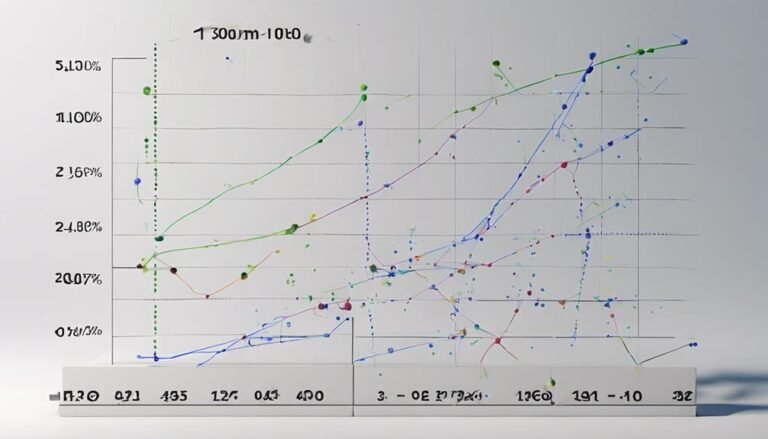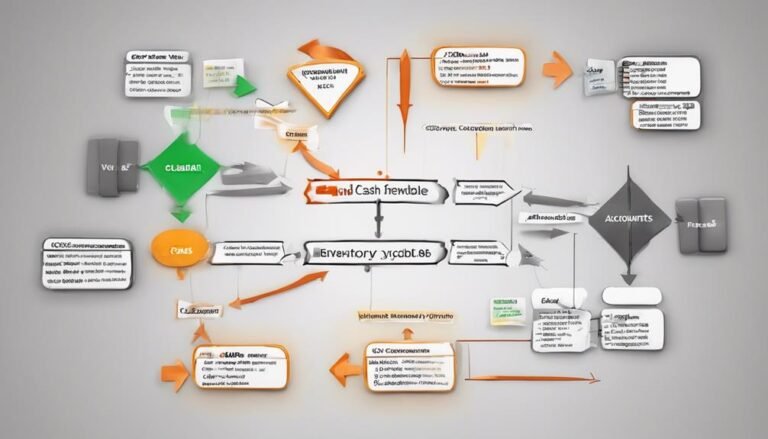Baby Boomer: Definition, Age Range, Characteristics, and Impact
Born between 1946 and 1964, Baby Boomers have left a lasting impact on societal and economic landscapes, guiding consumer behavior and financial markets. They play a major role in the longevity economy, projected to reach $15 trillion by 2030. With 53.2% of personal net worth, they continue to wield substantial economic influence. Their retirement challenges, from evolving pension plans to Social Security concerns, underscore the need to grasp the dynamics of retirement savings. Baby Boomers' influence extends beyond economics, shaping music, fashion, and social movements. Their role in the longevity economy makes them a pivotal generational segment.
Key Takeaways
- Born between 1946 and 1964, Baby Boomers influenced consumer behavior and housing markets.
- Baby Boomers contributed $8.7 trillion to the longevity economy in 2020.
- Witnessed rise of longevity culture, played pivotal role in suburban migration trends.
- Hold 53.2% of personal net worth, with significant spending power projections.
- Facing retirement challenges, navigating pension changes, and concerns about Social Security viability.
Baby Boomer Definition and Characteristics
The Baby Boomer generation, encompassing individuals born between 1946 and 1964, emerged as a significant demographic cohort with distinctive characteristics and enduring impacts on society and the economy. This generation witnessed the rise of a longevity culture, with advancements in healthcare and lifestyle choices contributing to extended lifespans. Additionally, Baby Boomers played a pivotal role in shaping suburban migration trends, driving the growth of suburban communities and altering urban landscapes.
Their preference for suburban living influenced consumer behavior, housing markets, and transportation infrastructure. The interplay between the longevity culture and suburban migration trends among Baby Boomers has left a lasting imprint on societal norms and economic patterns, underscoring the generation's profound influence on various aspects of contemporary life.
Baby Boomer Economic Impact
With the Baby Boomer generation's profound influence on societal norms and economic patterns, it is imperative to analyze their significant economic impact, especially when considering financial resources and spending behaviors. Baby boomers have a substantial economic influence, particularly in the longevity economy spending sector. In 2020 alone, they contributed $8.7 trillion to this market, a figure expected to rise to $15 trillion by 2030. Moreover, baby boomers held 53.2% of personal net worth in early 2023, showcasing their financial strength and influence. This generation's economic impact is enduring, shaping various sectors and industries with their significant spending power projections.
| Economic Impact | Data |
|---|---|
| Longevity Spending | $8.7 trillion (2020) |
| Personal Net Worth | 53.2% (early 2023) |
| Future Spending | $15 trillion (by 2030) |
| Influence | Enduring |
| Spending Power | Significant Projections |
Baby Boomer Retirement Trends
Facing financial challenges in retirement, Baby Boomers are maneuvering through a landscape shaped by increased life expectancy and evolving pension structures. With the first wave turning 65 in 2011 and all expected to be 65+ by 2029, they are encountering longevity challenges, leading to longer retirement periods.
The shift from defined-benefit to defined-contribution plans has added complexity to retirement savings, raising concerns about the viability of Social Security. Despite being a significant economic force in retirement, Baby Boomers' reliance on Social Security has implications for policymaking and market strategies.
As this generation continues to navigate retirement trends, understanding their retirement savings dynamics is essential for ensuring financial stability in their later years.
Baby Boomer Generational Impact
An examination of the Baby Boomer generation reveals a distinct and enduring impact on various facets of society and the economy. Culturally, baby boomers have influenced trends in music, fashion, and social movements, shaping the cultural landscape for decades.
Their financial challenges in retirement, such as concerns over Social Security viability and reliance on retirement savings, have implications for policymaking and market strategies. Despite facing these challenges, baby boomers continue to wield significant economic influence, holding over half of the personal net worth in recent years.
Their spending power in the longevity economy is substantial, with projections indicating a continued impact on sectors and industries. The legacy of the baby boomer generation is evident in both cultural influences and financial dynamics, marking them as a pivotal generational segment.
Baby Boomer Facts and Figures
The statistical analysis of the Baby Boomer generation provides valuable insights into their demographic impact and financial standing. Baby boomers, with 76 million born in the U.S. during the boom, are significant players in the silver economy. Trends in household wealth distribution since 1989 showcase the financial landscape they navigate. Ownership statistics of retirement accounts shed light on their preparedness for retirement.
Concerns over Social Security viability and projections regarding the Social Security trust fund and worker-to-beneficiary ratios are key areas of interest. Understanding the intricate web of household wealth and retirement savings among baby boomers is important for policymakers, financial institutions, and the generational cohort itself as they navigate the complexities of aging and retirement.
Conclusion
To sum up, the Baby Boomer generation, known for its significant demographic presence and economic influence, is facing retirement challenges and shaping societal dynamics.
With their longevity and substantial spending power, Baby Boomers continue to impact various sectors and industries.
As they navigate retirement and financial uncertainties, the generational impact of Baby Boomers remains a key consideration for policymakers and businesses.
The era of the Baby Boomers is far from over, as they continue to shape economic trends with their unique characteristics and behaviors.







